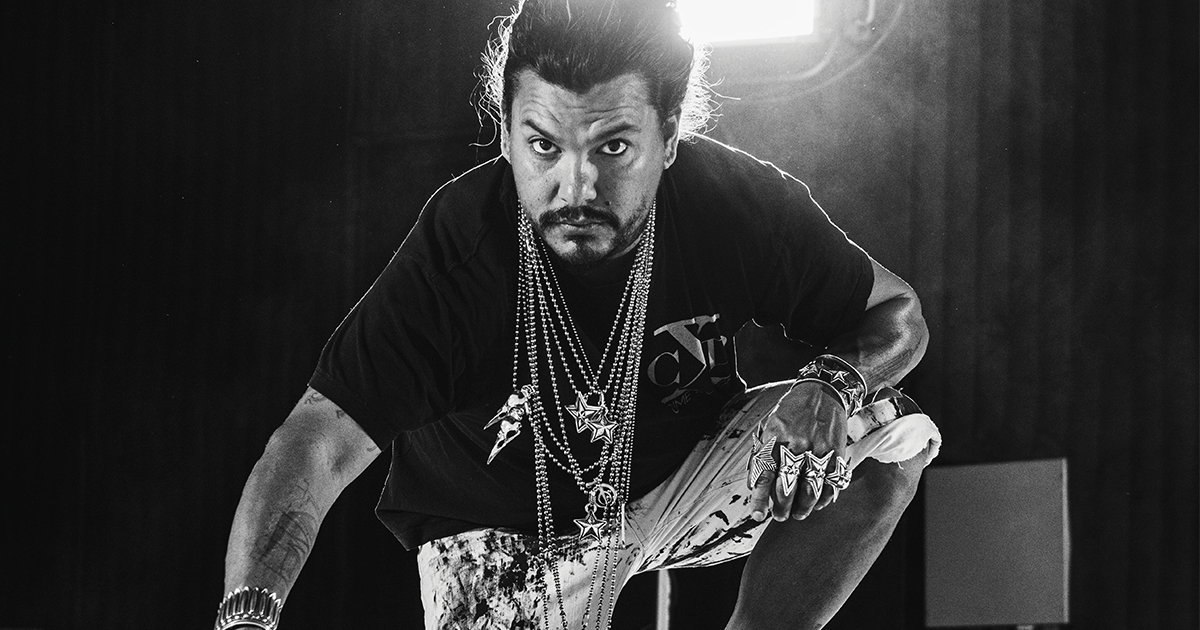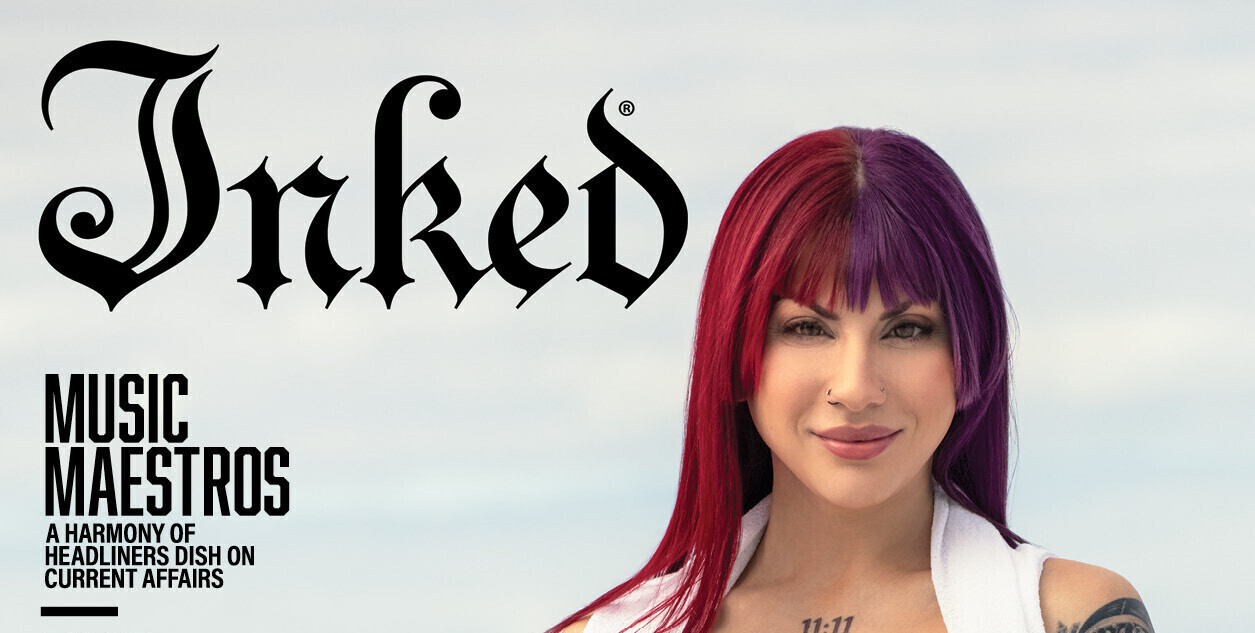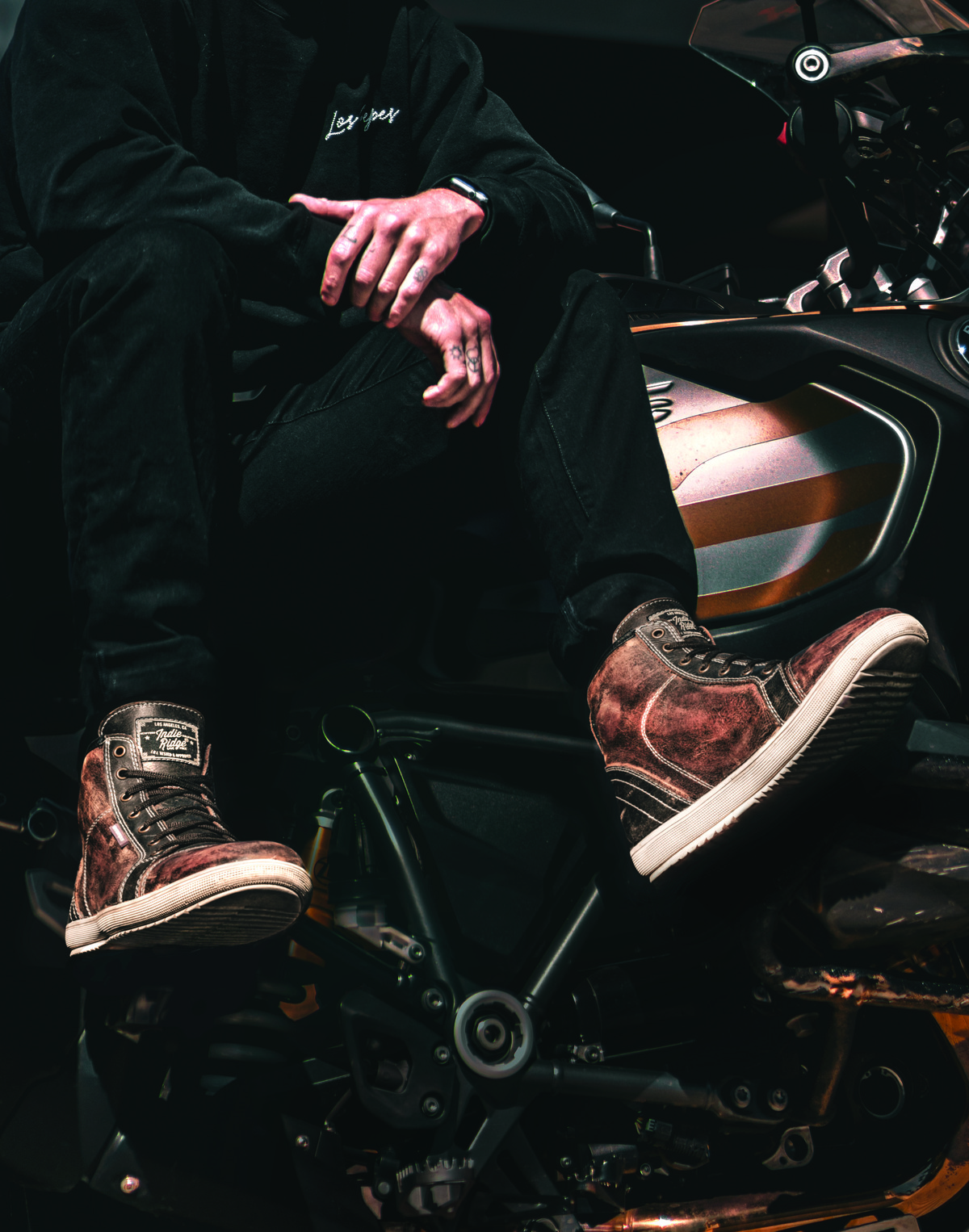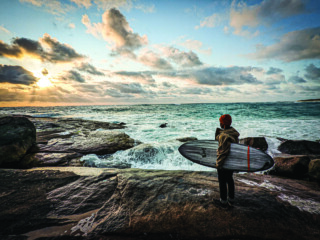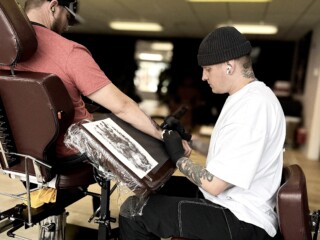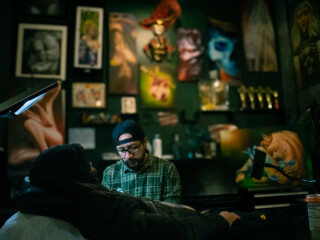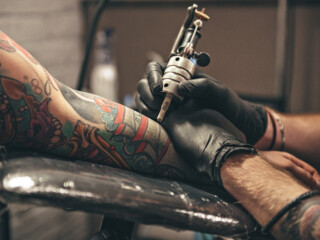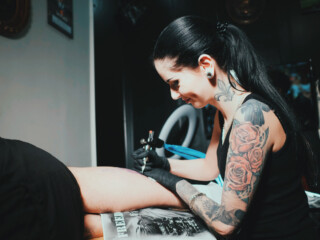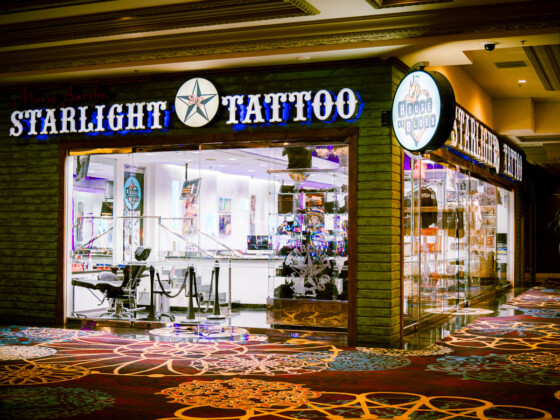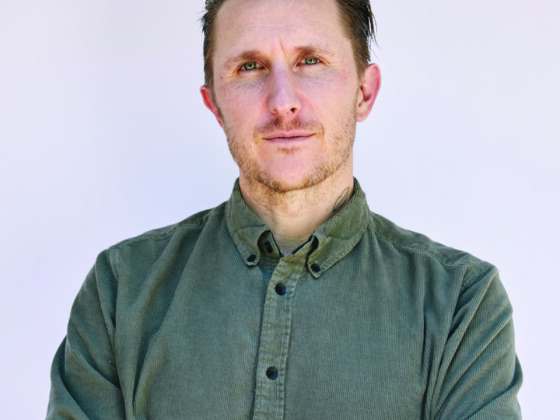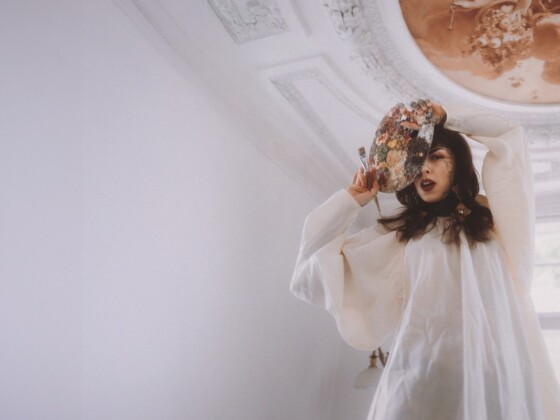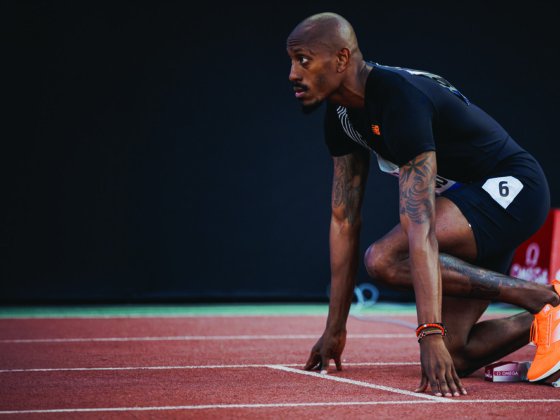Inked Mag Staff
November 4th, 2022
Life of Crime
Crime by Design takes us inside his world to show how art has influenced every aspect of his life
Interview by Dominic Ciambrone
Photos by Dominic Ciambrone
Photographer Assistant: Bryam Villacres
Key Makeup by Dominique Lerma
It all started with doodles. You know, the completely mindless little drawings we all do in the margins of our papers when we’re bored. For Crime, doodling was much more than just a way to while away the hours, it was an all-encompassing passion from which he vaulted himself into the art world. Dominic Ciambrone sat down with Crime to talk about his artistic journey, the significance he places on famous architecture and much more.
How did you first get into art?
From the fifth grade moving forward, I would always doodle on my classwork and I’d eventually make every one of my teachers used to seeing my doodles on my classwork. They wouldn’t complain as long as they could see the work, whatever it was. If it was a story that we had to write or even a math test or a science test, I would doodle on it and then they would just be OK with it.
Would you pass the test?
Yes. I had straight A’s when I was in fifth grade, I literally had straight A’s. It was crazy.
What was your earliest artistic inspiration? Like, what were the doodles of?
Dogs, cats, buildings. Always buildings. Any building—the school, a house. Cars, faces. I wasn’t ever any good, I just always wanted to be drawing. I never felt like art had anything to do with being able to draw. I should make that a quote, actually.

So after doodling, when did you first get into painting?
For my sixth grade presentation, I was Leonardo DaVinci and I took my mom’s VHS camera and we recorded a video of me standing in front of a canvas pretending to paint the Mona Lisa.
That’s sick.
Yeah, I know. I’m telling you, if we could find that video and I could post it, that’s one of those things that would be legendary because my mom even drew the little fake mustache on me.
Can you describe how you paint or what the process is?
I feel like, the way that I paint, I can describe it as being myself. And when I paint something, I paint it from what I feel the painting or the object needs to just… not the bare minimum, but what the object needs to just be able to be like, “that’s that.” So sometimes if it’s a car, you know it’s gonna have two wheels and a door and there’s gonna be some form of a box. The reason why the Empire State Building always stood out to me was because it was the one that had all the layers. I feel like all buildings after the Empire State Building are, like, the children of the Empire State Building.
To this day, my mom has never been to New York. And as a kid growing up, I never even thought I would be able to make it to New York. As a kid in Los Angeles, I thought, “I’m gonna live this life and I’m gonna go to New York maybe once or twice in my lifetime.”
People would travel and they’d bring back postcards. I learned what the Eiffel Tower was from a postcard, I didn’t learn it from a book. So the Eiffel Tower for me has always been the most inspirational destination I could ever imagine, more than anywhere on Earth. I thought the way that you’ll know if you’ve made it in this life is if you’re able to visit the Eiffel Tower.

That’s deep. So it started with the postcard, and…
So it started by me getting a hold of postcards and then I would doodle what the postcard had on it. And throughout the years, I just continued painting privately for myself, not for anyone. Then around 2012, I moved to downtown LA and had the opportunity to have two lofts, one for Crime By Design, my clothing brand, and one for my paintings, for me to paint. I would be in there and I would just paint and paint and paint for years. And through those years via my Instagram, I would always post about art and Art Basel and all these things. I believe in 2017 we did a dinner with Perrier-Jouët in Miami where I showed my art. It was just for me and, like, 20 of my friends and I had art on the walls at Bagatelle. It was the first time I showed my art to the world.
That’s amazing.
And then I put it back to sleep! I went back to just making clothing, posting on Instagram, painting privately, and then around 2019 I started selling paintings.

How do the fashion and art worlds combine for you?
I always painted on clothes. In 2010, when I went to Coachella, I painted all over my jeans and my clothing and whatnot. People liked the fact that I painted all my clothing. They knew it was mine. They knew I was the one who was doing it. I would paint on my shoes and paint on my clothing, and I would think, well, I could make clothes because I knew how to print shirts and stuff like that. But I’ve always had this massive sense of procrastination when it came to making clothing, because I never wanted to only be thought of as somebody who made clothes. I knew I was an artist first. And I said, I need to make sure the world understands that I’m not a clothing designer who also paints. I’m an artist who makes clothes.
“I’m an artist who makes clothes.” I like that.
Yeah. I’m not a fashion designer who thinks they can paint. I’m an artist who sometimes makes clothes. That’s what I’ll say.

Got it. What are some similarities and differences in how you approach your paintings and how you approach clothing?
When I’m making clothing I always wanna raise the sophistication of the way we talk about what we’re doing. I want people to understand that there is actual thought when we’re picking clothing. Be it a pair of pants, be it a shirt, be it a pair of shoes, we’re actually thinking about it. We’re actually taking into consideration how people are gonna respond to what we’re wearing, because sometimes we’re gonna be treated differently based on what we’re wearing, but we are actively choosing what we are wearing. It’s the same thing when somebody’s choosing what they’re gonna hang in their home, so I always like to put myself in the position of the person who’s gonna be wearing my clothing or having my art in their house. Would I want this to be part of my collection? This is another statement: I don’t consider the people who buy my art and my clothing to be customers or clients. I consider them collectors.

How has your artistic inspiration translated to the tattoos you collect?
I’d say the one thing we can tie into the earlier part where we talked about the Eiffel Tower, and how it ties into Inked magazine, is that I’m somebody who really, really thinks about my tattoos and really thinks about branding overall, because branding not only has to do with your product that is separate from you—you yourself are a product. I want the world to know my love for structures, including the Eiffel Tower and the Empire State Building. And that’s why I have them tattooed on me.
Editor's Picks
Lady Gaga, Post Malone and More Tattooed Artists Who Rocked Coachella 2025 Weekend One
Coachella 2025 Weekend One delivered epic sets from Post Malone, Lady Gaga, Travis Scott, Billie Eilish, and more!
Beachside Bombshells
Inked Magazine’s 2024 Cover Girl competition winners strut their beauty and body art beachside.
New Kicks on the Block
Indie Ridge has created a niche riders didn’t know they wanted. And it seems to be catching on.

